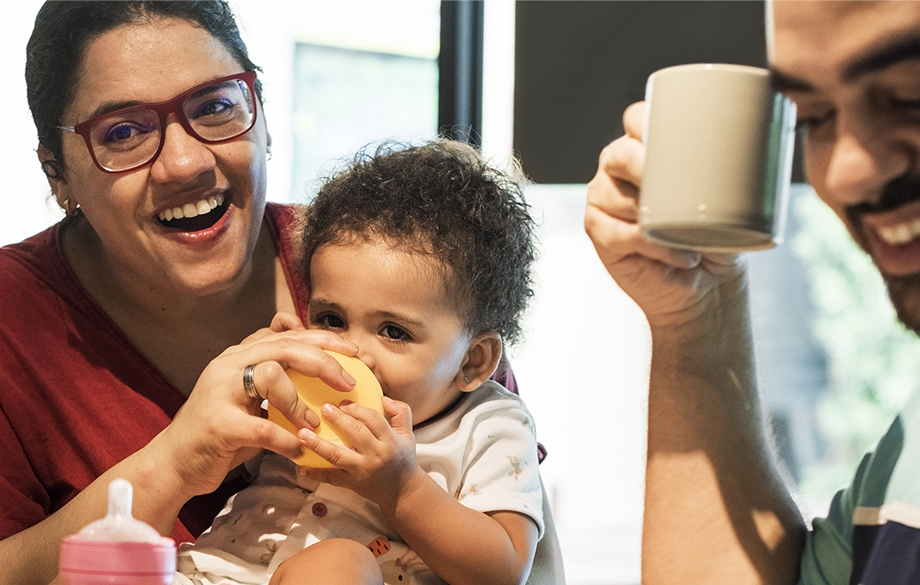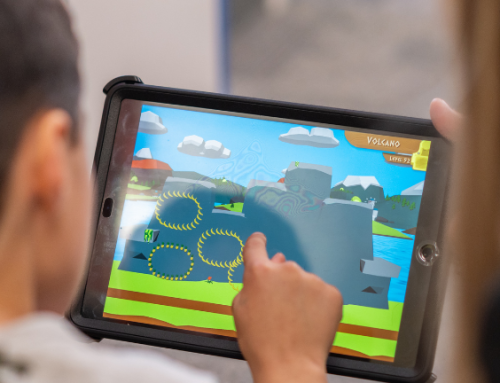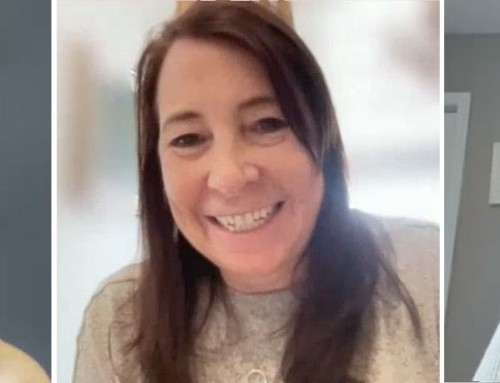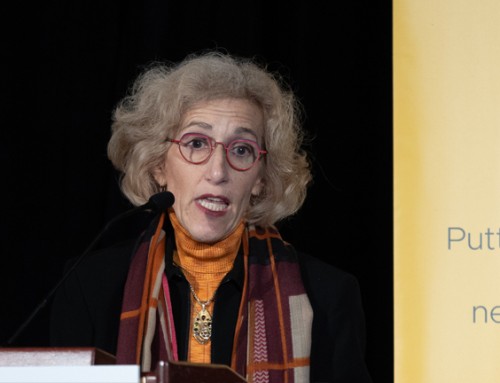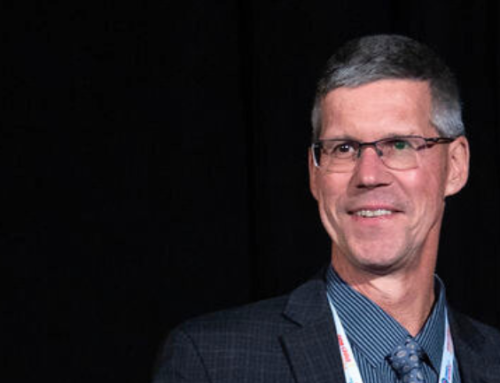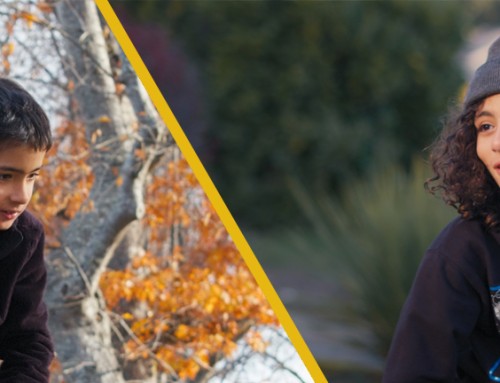Between 40 to 70 percent of children with neurodisabilities struggle with emotional and behavioural problems during their childhood. Research shows that family mental health is highly interconnected.
“The family is a system in which each member affects the others – for good and for bad,” says Dr. Jean-Paul Collet, a Kids Brain Health investigator researching recreational therapies and their impacts on children with neurodisabilities and their families. “This transactional relationship stresses the importance of any event on the whole family. The same child may be source of stress and despair at one time, and also source of joy and hope at another time.”
“We have data about the importance of mental health in the family unit when a child is being raised with a neurodevelopmental disability (NDD),” notes Dr. Collet, adding that current evidence – including the European study on families raising children with CP – accords “huge importance to family members’ emotional strength and mental stability. Family health is fundamental in the optimal support of children with NDDs.”
Yet access to support for those attributes can be thin on the ground. Many families struggle to find and access evidence-based care. “Mental health care is a right for all children – with and without neurodevelopmental disabilities,” notes Dr. Jonathan Weiss, who led several studies for the Network targeting anxiety and improved self regulation in children and youth with autism. “We need to improve access for all to high-quality, evidence-based mental health treatments.”
In addition to our work in early diagnosis and effective treatments for core symptoms of neurodisabilities, Kids Brain Health Network is prioritizing research in family support. Many of our current and previous projects, including those headed by Drs. Weiss and Collet – address mental health. In acknowledgement of #ChildrensMentalHealthWeek 2018, here are our related programs and projects:
“We can make a difference in the lives of children with neurodevelopmental disabilities. All children deserve to thrive and be happy. Let’s make it happen by improving their access to mental health care.” – Dr. Jonathan Weiss
Family Support
Strongest Families FASD
Dr. Patrick McGrath (IWK Health Centre) and Dr. James Reynolds (Queen’s University)
What if there was a way for Canadian families raising children FASD to access extensive support, without having to leave home? Accessibility is a primary value of the Strongest Families FASD project, a study featuring an Internet-based behavioural support program for the families of youth between the ages of 4 to 12 living with FASD. The project has already been running for several years, and initial clinical trials of the intervention are being evaluated.
Fetal Alcohol Resource Program (FARP)
Dr. James Reynolds (Queen’s University), and Citizen Advocacy Ottawa
Lanched in September 2015 in partnership with the Children’s Hospital of Eastern Ontario, the Children’s Aid Society of Ottawa, and the Community Foundation of Ottawa, this collaboration brings together key community organizations and expertise in child welfare, education, health and mental health and social justice, to coordinate service delivery for individuals and families living with FASD. The main goal of FARP is to maximize the efficiency of services and programs that already exist.
ouR-HOPE
Dr. Eric Racine and Dr. Emily Bell (Université de Montréal, Institute de Recherches Cliniques de Montréal)
When a newborn baby is diagnosed with an acute brain injury, parents are often in shock. They are also compelled to actively participate in decision making about the medical care of their infant at a time when they feel least prepared to evaluate their choices, and their longer-term impacts. Recognizing the real need for improvement in interactions between the various specialists who oversee neurologically compromised infants and their parents, a task force was convened. “Ethics and communication of neurological prognosis” drew participation from pediatric neonatologists and neurologists, parents of children with brain injury, and bioethicists. A paper has been published on the findings of the collaboration, and further opportunities are being explored to engage clinicians in putting ouR-HOPE principles into action.
Parents Participating in Research
Dr. Jan Willem Gorter (CanChild/McMaster University)
Research in early diagnosis and treatment of neurodevelopmental disabilities has more impact when families, children and youth inform studies from concept through execution, uptake and rollout of findings in the form of programs, policies and services. These central tenets of knowledge mobilization are a cornerstone of the family-researcher partnership CanChild promotes as part of Kids Brain Health’s individual research studies, Family Engagement Days and a closed and moderated Facebook group called Parents Participating in Research.
MyMind
Dr. Jonthan Weiss (York University)
A meditation and mindfulness program developed in the Netherlands is being evaluated for its capacity to help youth with autism – and their parents – navigate the stressors of daily life. Drawing from yoga, relaxation techniques and sitting meditation, parents and teens train in separate rooms. Three trials, each with nine parent-youth pairs, have been completed. The 90-minute sessions ran for nine weeks, and a booster session was offered three to six weeks after the last meeting.
Treatments and Interventions that Engage Parents
ESMT
Dr. Jean-Paul Collet and Dr. Bill McKellin (University of British Columbia)
Empowering Steps Movement Therapy (ESMT) is a B.C. gymnastics-based, structured training and treatment program for children and youth with neurodevelopmental disabilities being evaluated for its impacts on child, and the child’s family. Studying ESMT is also providing the foundation of a practical framework for evaluating other recreational therapies.
Better Nights Better Days (Sleep)
Dr. Penny Corkum (Dalhousie University) and Dr. Shelly Weiss (University of Toronto, SickKids Hospital)
Better Nights Better Days is an existing Internet-based treatment for insomnia, the most common sleep disorder in children – that affects 90 percent of kids with autism, attention-deficit/hyperactivity disorder, FASD and CP. Drs. Corkum and Weiss are customizing the sleep program for sleep troubles in children with neurodisabilities.
Social ABCs
Dr. Susan Bryson (Dalhousie University) and Dr. Jessica Brian (Bloorview Research Institute, University of Toronto)
A program developed as a parent-delivered treatment approach for toddlers with the first signs of autism, Social ABCs encourages shared attention and promotes speech development. The program has been trialed effectively with early childhood educators at Humber College in Toronto, and is being evaluated by the Ontario Ministry of Children and Youth Services as one of four programs to be evaluated for potential roll-out on a province-wide basis as an early intervention for autism.
Treatments and Interventions that focus on the child and help the whole family
Anxiety Meter
Dr. Azadeh Kushki, team lead (Autism Research Centre at Holland Bloorview Kids Rehabilitation Hospital)
A smart-phone based app that detects and measures anxiety levels in children with autism by measuring heart rate and converting it into a visual representation of the child’s anxiety level. The app is helpful for minimally verbal children, who have limited or no access to evidence-based anxiety treatments.
Caribbean Quest/Dino Island
Dr. Kim Kerns and Dr. Sarah Macoun (University of Victoria)
A facilitated videogame created by Kids Brain Health researchers improves working memory, focus and the capacity to self-regulate in children with FASD and autism. In pilot studies on Vancouver Island, initial results indicate children learn to cope with setbacks as they play the game and receive coaching that supports executive functioning.
ASD Voices
Dr. Mayada Elsabbagh (McGill University), Dr. David Nicholas (University of Calgary) and Dr. Lonnie Zwaigenbaum (University of Alberta)
Little has been documented about the personal perspectives of teens with autism as they mature. The main goal of ASD Voices is to gain an understanding of this terrain by collecting artwork, photography, writing and other creative products from participants portraying the challenges they face as they navigate high school and move towards adulthood.
Read about Dr. Jonathan Weiss’ study that showed cognitive behavioural therapy can improve emotional regulation in children with autism.


